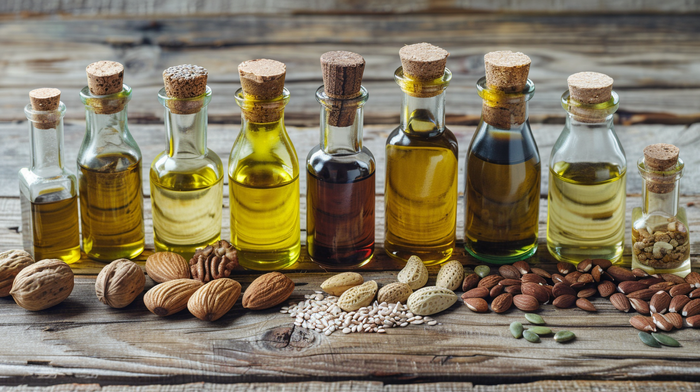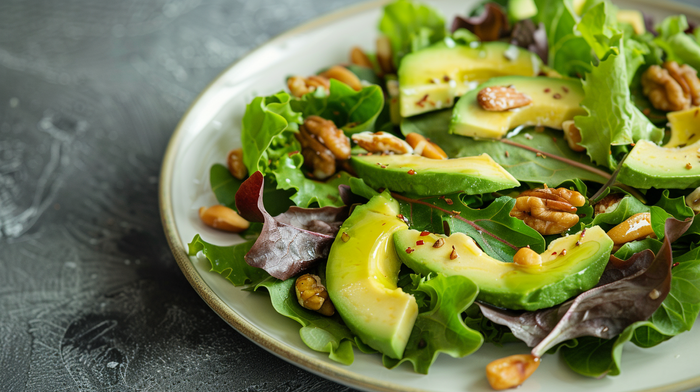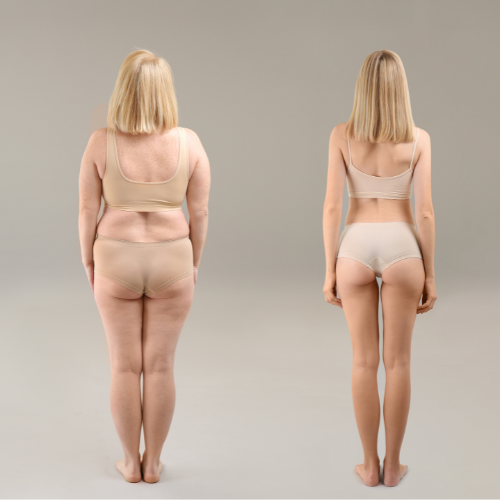What fats are essential for a healthy diet?
Fats play a key role in our diet, and are essential for the proper functioning of the body. Contrary to outdated beliefs, not all fats are harmful. There are fats that are not only healthy, but even essential for our health. In this article, we will look at what fats should be in a healthy diet and why they are so important.
The role of fats in the diet
Fats are one of the main macronutrients, along with proteins and carbohydrates, providing energy to the body. They also perform many other key functions, such as aiding in the absorption of fat-soluble vitamins (A, D, E, K), building cell membranes and producing hormones. Therefore, it is important not to omit fats in the diet, but to choose the healthiest ones.
Unsaturated fats - the heart of a healthy diet
Unsaturated fats, especially polyunsaturated (omega-3 and omega-6) and monounsaturated, are considered the healthiest. Regular consumption of unsaturated fats contributes to lowering bad cholesterol (LDL) and raising good cholesterol (HDL), which reduces the risk of cardiovascular disease. Sources of unsaturated fats include marine fish, vegetable oils (e.g., olive oil, flaxseed oil), nuts, seeds and avocados.

Saturated fats - in moderation
Saturated fats, found mainly in animal products such as butter, fatty meat, and cheese, should be consumed in moderation. Although they are essential for the body, an excess of them can contribute to an increase in bad cholesterol levels and increase the risk of heart disease. It is recommended that saturated fats account for no more than 10% of daily caloric intake.
Trans-fats - avoid at all costs
Trans-fats are considered the most harmful. They are formed in the process of hardening vegetable oils and are found in many processed foods, such as cookies, crackers, and fast food. Consumption of trans-fats contributes to an increase in bad cholesterol, a decrease in good cholesterol, and increases the risk of developing heart disease. The best strategy is to avoid products containing trans-fats.
How do you incorporate healthy fats into your diet?
Incorporating healthy fats into your diet is not difficult. Here are some simple tips: choose vegetable oils instead of animal fats, eat more fish, especially fatty fish such as salmon, mackerel and sardines, add seeds and nuts to salads, choose products rich in unsaturated fats, such as avocados. Also, remember to read product labels and avoid those that contain trans-fats.

Summary
Fats are an essential component of a healthy diet, but choosing the right ones is key. Unsaturated fats, such as omega-3 and omega-6, should form the basis of fat intake, while saturated and trans fats should be limited. By keeping these principles in mind, we can enjoy health and well-being while enjoying tasty and varied food.




